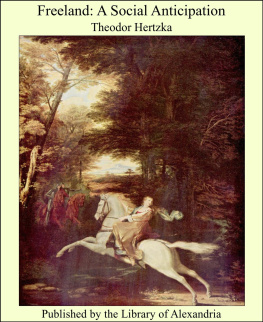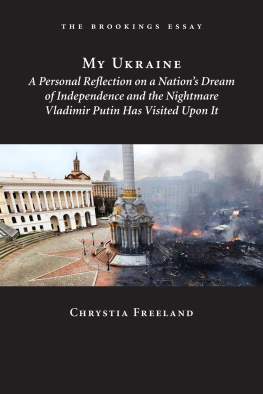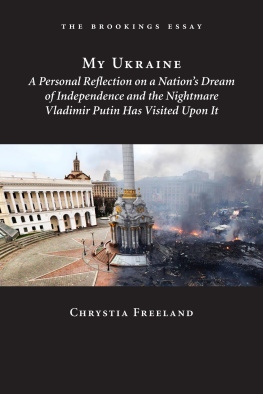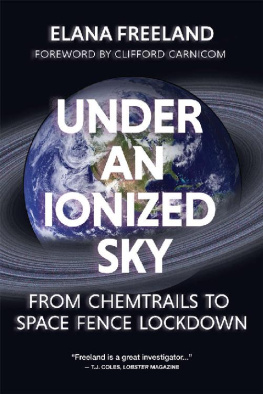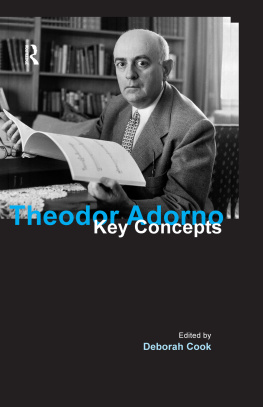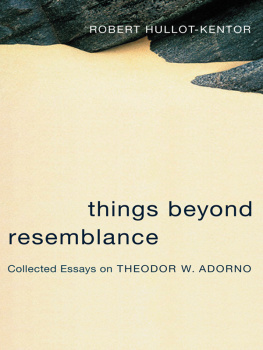TRANSLATOR'S NOTE
This book contains a translation of Freiland; ein sociales Zukunftsbild, by Dr. Theodor Hertzka , a Viennese economist. The first German edition appeared early in 1890, and was rapidly followed by three editions in an abridged form. This translation is made from the unabridged edition, with a few emendations from the subsequent editions.
The author has long been known as an eminent representative of those Austrian Economists who belong to what is known on the Continent as the Manchester School as distinguished from the Historical School. In 1872 he became economic editor of the Neue Freie Presse; and in 1874 he with others founded the Society of Austrian National Economists. In 1880 he published Die Gesetze der Handels-und Sozialpolitik; and in 1886 Die Gesetze der Sozialentwickelung. At various times he has published works which have made him an authority upon currency questions. In 1889 he founded, and he still edits, the weekly Zeitschrift fr Staats-und Volkswirthschaft.
How the author was led to modify some of his earlier views will be found detailed in the introduction of the present work.
The publication of Freiland immediately called forth in Austria and Germany a desire to put the author's views in practice. In many of the larger towns and cities a number of persons belonging to all classes of society organised local societies for this purpose, and these local societies have now been united into an International Freeland Society. At the first plenary meeting of the Vienna Freilandverein in March last, it was announced that a suitable tract of land in British East Africa, between Mount Kenia and the coast, had already been placed at the disposal of the Society; and a hope was expressed that the actual formation of a Freeland Colony would not be long delayed. It is anticipated that the English edition of Freiland will bring a considerable number of English-speaking members into the Society; and it is intended soon to make an application to the British authorities for a guarantee of non-interference by the Government with the development of Freeland institutions.
Any of the readers of this book who wish for further information concerning the Freeland movement, may apply either to Dr. Hertzka in Vienna, or to the Translator.
A.R.
St. Loyes, Bedford : June, 1891.
AUTHOR'S PREFACE
The economic and social order of the modern world exhibits a strange enigma, which only a prosperous thoughtlessness can regard with indifference or, indeed, without a shudder. We have made such splendid advances in art and science that the unlimited forces of nature have been brought into subjection, and only await our command to perform for us all our disagreeable and onerous tasks, and to wring from the soil and prepare for use whatever man, the master of the world, may need. As a consequence, a moderate amount of labour ought to produce inexhaustible abundance for everyone born of woman; and yet all these glorious achievements have not--as Stuart Mill forcibly says--been able to mitigate one human woe. And, what is more, the ever-increasing facility of producing an abundance has proved a curse to multitudes who lack necessaries because there exists no demand for the many good and useful things which they are able to produce. The industrial activity of the present day is a ceaseless confused struggle with the various symptoms of the dreadful evil known as 'over-production.' Protective duties, cartels and trusts, guild agitations, strikes--all these are but the desperate resistance offered by the classes engaged in production to the inexorable consequences of the apparently so absurd, but none the less real, phenomenon that increasing facility in the production of wealth brings ruin and misery in its train.
That science stands helpless and perplexed before this enigma, that no beam of light has yet penetrated and dispelled the gloom of this--the social--problem, though that problem has exercised the minds of the noblest and best of to-day, is in part due to the fact that the solution has been sought in a wrong direction.
Let us see, for example, what Stuart Mill says upon this subject: 'I looked forward ... to a future' ... whose views (and institutions) ... shall be 'so firmly grounded in reason and in the true exigencies of life that they shall not, like all former and present creeds, religious, ethical, and political, require to be periodically thrown off and replaced by others.'
1Autobiography, p. 166.
Yet more plainly does Laveleye express himself in the same sense at the close of his book 'De la Proprit': 'There is an order of human affairs which is the best ... God knows it and wills it. Man must discover and introduce it.'
It is therefore an absolutely best, eternal order which both are waiting for; although, when we look more closely, we find that both ought to know they are striving after the impossible. For Mill, a few lines before the above remarkable passage, points out that all human things are in a state of constant flux; and upon this he bases his conviction that existing institutions can be only transitory. Therefore, upon calm reflection, he would be compelled to admit that the same would hold in the future, and that consequently unchangeable human institutions will never exist. And just so must we suppose that Laveleye, with his 'God knows it and wills it,' would have to admit that it could not be man's task either to discover or to introduce the absolutely best order known only to God. He is quite correct in saying that if there be really an absolutely best order, God alone knows it; but since it cannot be the office of science to wait upon Divine revelation, and since such an absolutely best order could be introduced by God alone and not by men, and therefore the revelation of the Divine will would not help us in the least, so it must logically follow, from the admission that the knowing and the willing of the absolutely good appertain to God, that man has not to strive after this absolutely good, but after the relatively best, which alone is intelligible to and attainable by him.
And thus it is in fact. The solution of the social problem is not to be sought in the discovery of an absolutely good order of society, but in that of the relatively best--that is, of such an order of human institutions as best corresponds to the contemporary conditions of human existence. The existing arrangements of society call for improvement, not because they are out of harmony with our longing for an absolutely good state of things, but because it can be shown to be possible to replace them by others more in accordance with the contemporary conditions of human existence. Darwin's law of evolution in nature teaches us that when the actual social arrangements have ceased to be the relatively best--that is, those which best correspond to the contemporary conditions of human existence--their abandonment is not only possible but simply inevitable. For in the struggle for existence that which is out of date not only may but must give place to that which is more in harmony with the actual conditions. And this law also teaches us that all the characters of any organic being whatever are the results of that being's struggle for existence in the conditions in which it finds itself. If, now, we bring together these various hints offered us by the doctrine of evolution, we see the following to be the only path along which the investigation of the social problem can be pursued so as to reach the goal:

